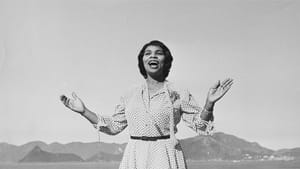Stay in the Loop
BSR publishes on a weekly schedule, with an email newsletter every Wednesday and Thursday morning. There’s no paywall, and subscribing is always free.
Keeping Marian Anderson’s legacy alive with Penn Libraries

A great city should never get its history wrong. A great city should never lose its memory of the people, associations, and incidents that make the city significant. Yet, it happens because people are overlooked, society changes, unfortunate incidents are played down or pushed down the memory hole, and history disappears or gets misplaced. Luckily, the University of Pennsylvania Libraries, hard at work since getting a $110,000 grant in 2018 from Council on Library and Information Resources, has accomplished a monumental task of preservation with its digitization of more than 2,500 items with the Marian Anderson Collection.
Preserving a Philly legend
Anderson, one of the most celebrated singers of the 20th century and a Philadelphia-born, homegrown talent, needed her life, her 60-year career, and her advocacy for social justice preserved. And now, her letters, diaries, journals, interviews, recital programs, and private recordings are accessible to anyone who wants to discover American history through the life and voice of this remarkable woman.
Marian Anderson, born in South Philadelphia in 1897, was the oldest of three children. Her father, a teamster, worked at the Reading Terminal Market until his early death at work pushed the family into financial turmoil. The family moved around frequently, while Marian’s mother took in laundry and worked as a housekeeper for Wanamaker’s department store. It was at the Union Baptist Church at 12th and Bainbridge Streets where Marian Anderson’s beautiful contralto voice (with a three-octave range) was noticed, appreciated, and cultivated. Within a few short years, Anderson would appear at the Academy of Music in 1918, and then study and concertize in Europe. She became a protégé of Jan Sibelius before making her debut in Paris in 1934. In 1935, she became the first African American musician to perform at the White House. After being turned away from Washington DC’s whites-only Constitution Hall by the Daughters of the American Revolution in 1939, Marian Anderson instead sang on the steps of the Lincoln Memorial before a crowd of 75,000. From then on, she was a Civil Rights icon.
Know your history
I spoke with April James, a singer and the reader services librarian at the Penn Libraries’ Kislak Center.
“Memory is constructed by what we pay attention to. What we pay attention to is really what we remember," James said. "The people that we pay attention to form our memories and form our history. And those that we ignore, well, there they go, on the sidelines…. My interest in Marian Anderson comes from my desire to get her memories back in the public memory. If someone can grow up in Philadelphia and not know Marian Anderson, I think that’s tragic. We’re hoping that everybody will use this collection!”
James loves to introduce students to Marian Anderson’s work, from elementary to college learners. Penn Libraries staff have transcribed more than 1,500 pages of her handwritten diaries, notebooks, and letters. Her concert programs, recordings, personal scrapbooks, and photographs are available for viewing. Now, everyone can be introduced to Anderson’s work.
What Penn Libraries has done is make the material of one woman’s life and one woman’s struggle available so she can be understood in relation to the specific cultural and historical contexts and community belief systems that surrounded her when she was alive. Marian Anderson faced challenges that we can only grasp by deeply recognizing the circumstances of her life, and the way we do that is to visit the Marian Anderson Collection, fully digitized and ready to go.
What, When, Where, and Accessibility:
The Marian Anderson Collection is available digitally via the University of Pennsylvania Libraries, and is open to the public. View it online.
Sign up for our newsletter
All of the week's new articles, all in one place. Sign up for the free weekly BSR newsletters, and don't miss a conversation.

 Suzanne Cloud
Suzanne Cloud